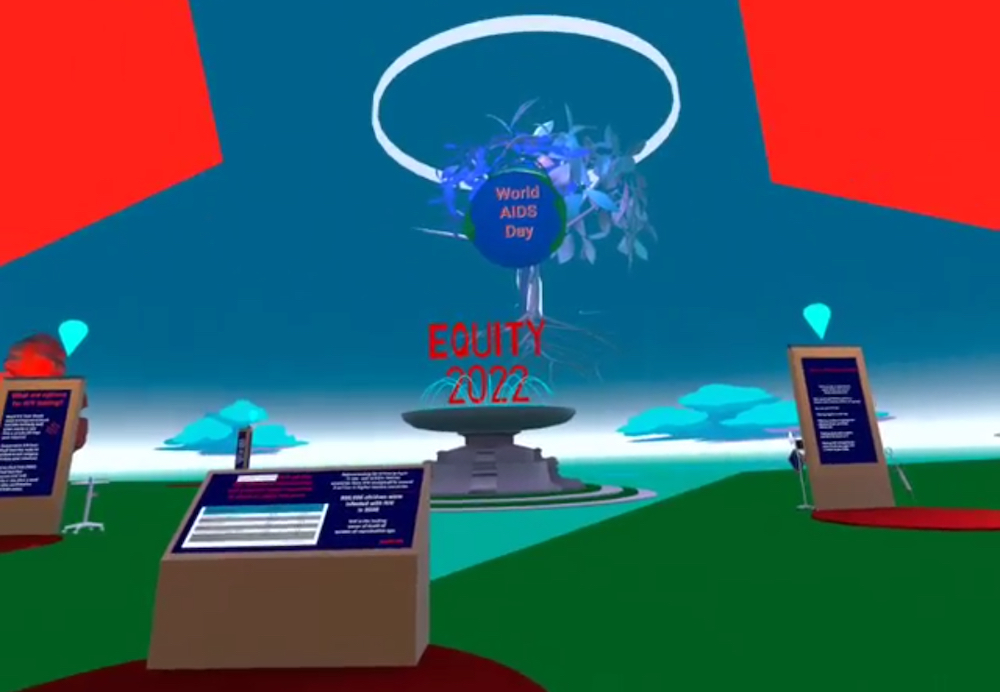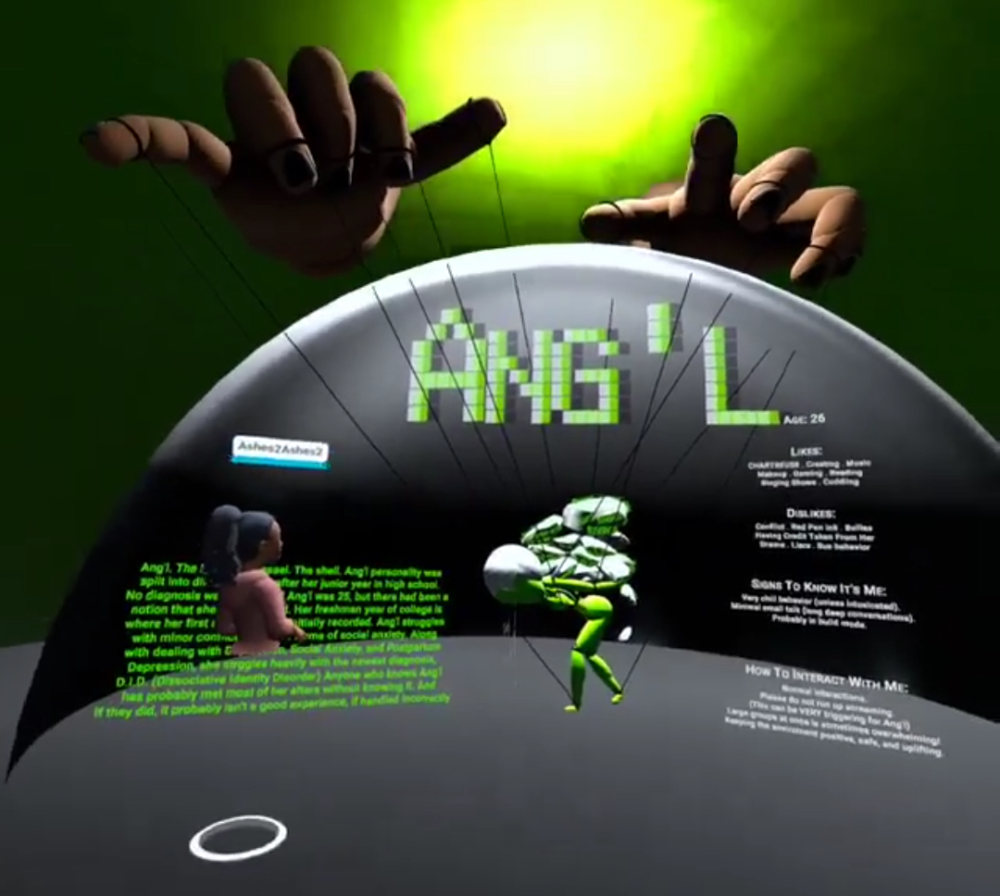The Horizon Creator Community, which is made up of many of the long-term, core user creators updating the Meta-backed Worlds daily, specifically centers diverse voices and prioritizes collaboration. The group defines diversity as “embracing what is different, displaced and pushed away, and making room to be surprised and grow.”
The community’s goal is to build a place where no one doesn’t belong, because Worlds draws people who in many cases feel like they don’t belong in other spaces. They may feel that way because of racism, homophobia, transphobia, misogyny, religious or cultural marginalization, or the broad spectrum of ableism toward people who are neurodivergent, mentally or developmentally disabled, chronically ill or physically disabled.
You might be tempted to think that the metaverse could be a utopia where things like race, sexual identity and disability simply cease to exist — but that’s far from the goal of prioritizing DEI in the Horizon Creator Community. Through Worlds, users can not only connect with people who share their own marginalization, they can immerse themselves in the experiences of people different from themselves.
“Especially in VR, for a lot of people, physical reality is not working out socially for them,” said Ruth Diaz, client and village coordinator for VRinReview, a VR-based company that creates digital spaces (aka worlds, lowercase) in Worlds with DEI intentionality. “It’s not meeting their needs, so social VR is a new opportunity to try to find the village we’re all seeking.”
Many of the people coming in with one or more of marginalized characteristic often have little experience talking about it in physical reality, per Diaz. Thus, their goal in their everyday, regular life “is to blend in — but in virtual reality that becomes just not as engaging,” she said. “We want to be known as our full selves when we spend time in VR, learning how to talk about these things a different way to not just be entertained, but be educated and engaged with each other in meaningful relationships.”
Here’s what that looks like in practice:
Honoring World AIDS Day
Diaz led a team that created the all-volunteer-created world HIV Awareness and Allyship for World AIDS Day on Dec. 1. On the day, there was an event there that included a live panel and educational resources, as well as interactive VR art pieces, including a walkthrough tribute to a father lost to HIV by his now-adult child. The world is accessible to explore at any time, and there are plans to add more installation art and have a bigger event next year.

HIV Awareness and Allyship Day. (Screenshot by Holly Quinn)
The Lorraine Motel
Ashley Briley, a Black woman creator and the cofounder of VRinReview, remembers Worlds in its pre-beta stage, and how the Horizon Creator Community broke down barriers that easily could have become baked in.
One of the early worlds is The Lorraine Motel made by user nikke41 as an educational tribute to Dr. Martin Luther King. The recreation of the motel in Memphis where Dr. King was assassinated, now the National Civil Rights Museum, remains a favorite of Briley’s.
“What endears me to this world is that this was an early world,” she said, noting it lacks some of the features of more recent worlds but remains impactful. “A lot of skill is evident to me, but people who might have come in later might not appreciate just the time and commitment that went into creating this space. That alone shows me what reverence the creator had for the topic, and it’s creating the culture and the spaces when you do that.”
Today, some of the most active creators on the platform are Black, building worlds that educate and open up space for topical discussion like “Ask the Q/Speak Your Truth” by Burdenofproof, as well as places created for fun, like virtual clubs with events featuring DJs or comics. Even if you’re not a VR user, you can glimpse the culture on Instagram and TikTok.

The Lorraine Motel in VR. (Screenshot by Holly Quinn)
Our Safe Space
Created by ANGLtheARTIST, Our Safe Space is a world that deals unflinchingly with mental illness. Angl tells their story through four separate hallways that represent different dissociative identities. In the center, visitors can travel to a core room where they can sit and share their own stories, listen or spend time quietly contemplating.
Angl educates visitors on their recent mental health diagnosis, Diaz said, “doing it in a way where when you float to the very final scene, it’s a safe place for [Angl] to be in and talk to people, but it’s also a representation of [Angl’s] inner self. It’s brought a lot of very diverse people together to hang out and talk.”

Our Safe Space. (Screenshot by Holly Quinn)
A museum of microaggressions
Diaz’s next project that is currently under construction is a virtual museum of microaggressions.
“Have you ever heard of microaggressions as a metaphor for mosquitos?” she asked. “One of the innovative pieces is a game with mosquitoes as microaggressions.”
The microagressions world is expected to launch in 2023, and will have tours available.
“I believe toxic culture is born of uniform perspectives,” Diaz said. “So if we don’t know our own diversity, we start to dichotomize people around us. We make them objects. But if we have representation of diverse voices in any given social VR experience, we’re more respectful and more human. And so diversity reminds us continually to practice being human and not believe we have the right answer and continue to listen instead of letting toxic culture take control in virtual reality.”
Join the conversation!
Find news, events, jobs and people who share your interests on Technical.ly's open community Slack

Delaware daily roundup: Delmarva Power vendor stats; DelDOT's $15M federal grant; 50 best companies to work for

Delaware daily roundup: Over 4,000 Black-owned businesses uncovered; Dover makes rising cities list; a push for online sports betting

Philly daily roundup: East Market coworking; Temple's $2.5M engineering donation; WITS spring summit


